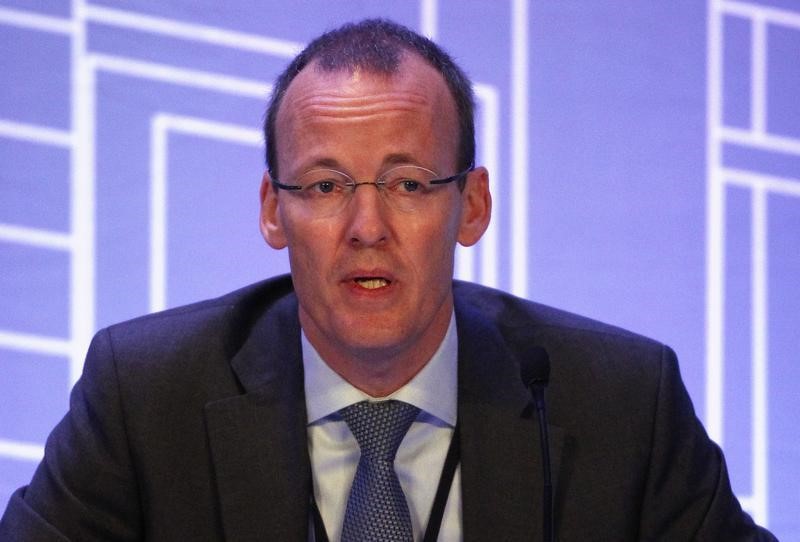FRANKFURT (Reuters) - The European Central Bank need to have a flexible approach to the time needed to reach its inflation objective to make sure its policies are aligned with financial stability objectives, Governing Council Klaas Knot said on Thursday.
The ECB is coming under increasing criticism that its massive assets buys, intended to kick-start inflation, are inflating asset prices, distorting financial markets, and leading to financial instability.
Indeed, an influential economist at the Bank for International Settlements argued that central banks should learn to live with low inflation rather than fuel debt with increasingly aggressive stimulus measures.
"The first thing you need to do in this context is use the medium term perspective in monetary policy in a sufficiently flexible fashion," Knot told a conference in Frankfurt.
The ECB targets inflation, now hovering near zero, at just under 2 percent over the medium term and has long argued that the timing depends on the size of the inflation shock.
"In such circumstances, financial stability and price stability are aligned, there is no contradiction, as long as you regard the time horizon... as sufficiently long," said Knot, who also heads the Dutch central bank.
Knot, who has in the past criticised the ECB's measures, said that the ECB's current policy, described as 'leaning against the wind' is needed given the risk of deflation risk after the bloc's economic crisis.
"The only periods in which negative inflation truly translates itself into negative, self-reinforcing deflationary spirals, is after a financial bubble has burst," Knot said.

"So there is strong case, that if the universal price of leverage is too low, you have a system wide build up of risks, then leaning against the wind monetary policy is optimal," he added.